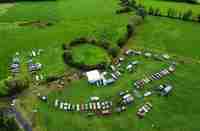An opinion poll last weekend saw Fine Gael restored to the status of currently being the country’s most popular political party. It continues a positive trend for the party since Simon Harris took over as Fine Gael Leader and Taoiseach earlier this year. EMMETT CORCORAN assesses the ‘Simon bounce’ that has transformed Fine Gael’s fortunes
Since Simon Harris took over the leadership of Fine Gael, the party has seen a resurgence, marked by successes in both the recent local and European elections. Under his guidance, Fine Gael managed to retain two seats in Midlands-North-West in the recent European elections and 245 council seats nationally, only three fewer than Fianna Fáil.
The result in Midlands-North-West was particularly surprising given that Nina Carberry, a late addition to the ticket, avoided media interactions and instead invested heavily in social media and postering while comfortably taking a second seat alongside her incumbent running mate, Maria Walsh MEP.
However, the question remains: is Fine Gael’s recent success more attributable to Harris’s competent and assertive leadership than to the candidates themselves?
Taoiseach Harris has adopted a firm stance on critical issues such as immigration and the cost of living crisis. While it remains to be seen if his rhetoric will translate into action, he seems to be winning back the hearts and minds of Fine Gael’s core grassroots supporters. By steering the party back to its natural home in the more socially conservative centre-right roots, Harris appears to understand the electorate better than his predecessor Leo Varadkar did. When faced with difficult questions, he tends to provide clear answers, a quality that Varadkar often lacked. Under Varadkar’s leadership, Fine Gael had moved towards a style-over-substance approach, which many, especially in rural areas, saw as mere virtue signalling. Harris, on the other hand, seems to be bringing substance back to national politics, which bodes well for the party in the upcoming General Election.
Despite his youth, Harris doesn’t lack experience and was mentored under the capable leadership of Enda Kenny, one of the few Taoisigh in recent times who stepped down on his own terms. Although Kenny was not particularly popular in Roscommon, his ability to connect with people was evident, and when you were in a room with the Mayo man you knew you were in the presence of a particularly astute politician.
Harris seems to be reviving this old-school Fine Gael leadership style. Despite the impending loss of 13 out of the current 33 sitting Fine Gael TDs (with two already moved on to bigger and better things since the 2020 elections), Harris is intent on leading the party back into power following the next General Election. It remains to be seen if he can undo the damage to Fine Gael’s reputation caused by previous leadership. However, Harris has shown a level of confidence, sincerity and competence in his interactions with opposition TDs and the public which has been missing in recent times. He appears to have his finger on the pulse and is not afraid to resist the often mass hysteria of more left-leaning groups, a stance that resonates well with Fine Gael’s traditional base.
At this stage, it seems likely that the next government will be a coalition of at least three parties. Harris’s growing popularity is helping Fine Gael recover lost ground, both at the ballot box and in the polls. The reality of Irish politics is that despite vocal outrage from some quarters, the electorate tends to prefer stability over the unknown. If Harris can replicate the success of the local and European elections in the upcoming General Election, he stands a solid chance of leading the next coalition government, as Fianna Fáil struggles to regain ground lost under the current leadership of Micheál Martin (ironically, the most popular leader in the country going by polls).
Fine Gael’s new tagline of Harris bringing ‘new energy’ seems to be a departing salvo from the style-over-substance approach of past leadership and the introduction of the tricolour to Fine Gael’s branding since Harris took the reins is also very telling. Whether one is a Fine Gael supporter or not, it is fair to say that Harris’s more conventional and non-confrontational style of leadership and willingness to tackle difficult issues head-on may indeed save Fine Gael from the oblivion it seemed to be facing only a few months ago. The biggest challenge now is recruiting enough candidates of a similar calibre to Taoiseach Harris around the country to ensure Fine Gael is in a strong position to lead the next coalition.
As we approach the General Election, all eyes will be on Simon Harris to see if he can continue to steer Fine Gael towards success and restore its reputation or whether the honeymoon period will end a tad too soon; however, his leadership thus far suggests he might just be the saviour Fine Gael has been looking for.






